Opinions on Debatable Issues #36
Thpugh climate change is an issue that has been hovering around for decades, people disagree on its urgency and sigificance. Some see it as an inevitable trend that slowly encroaches the earth. Others actively seek immidiate actions for reversing it. Some believe it is fabricated by government for political purposes. Existential threat refers to “danger relating to human existence and experience”, according to Collins Dictionary. Thus, climate change becomes an existential threat when Americans’ lives are in danger and or living quality and experiences are undermined.
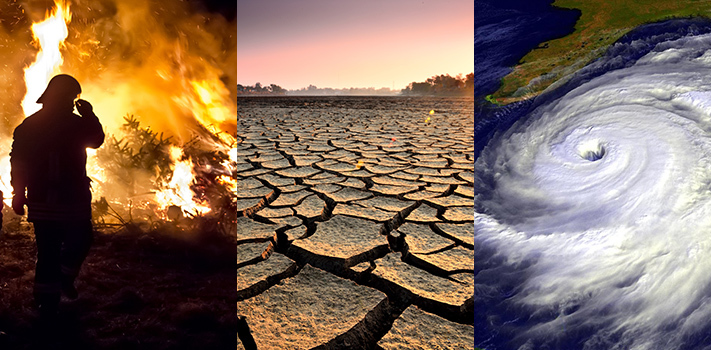
The horrendous effects of climate change have been shown to be enormous. According to Climate.NASA, climate change has had observable effects on the environment. One that is currently occurring is accelerated sea-level rising as ice melts. According to sealevelrise.org, an increase in sea level has “caused on average a 233% increase in tidal flooding across the United States”. The University of Georgia and Stetson University predict that 3 ft of sea-level rise “will affect an additional 4.2 million people.” That number becomes 13.1 million when sea level rises by 6 ft. Those people’s lives are upended by climate change.
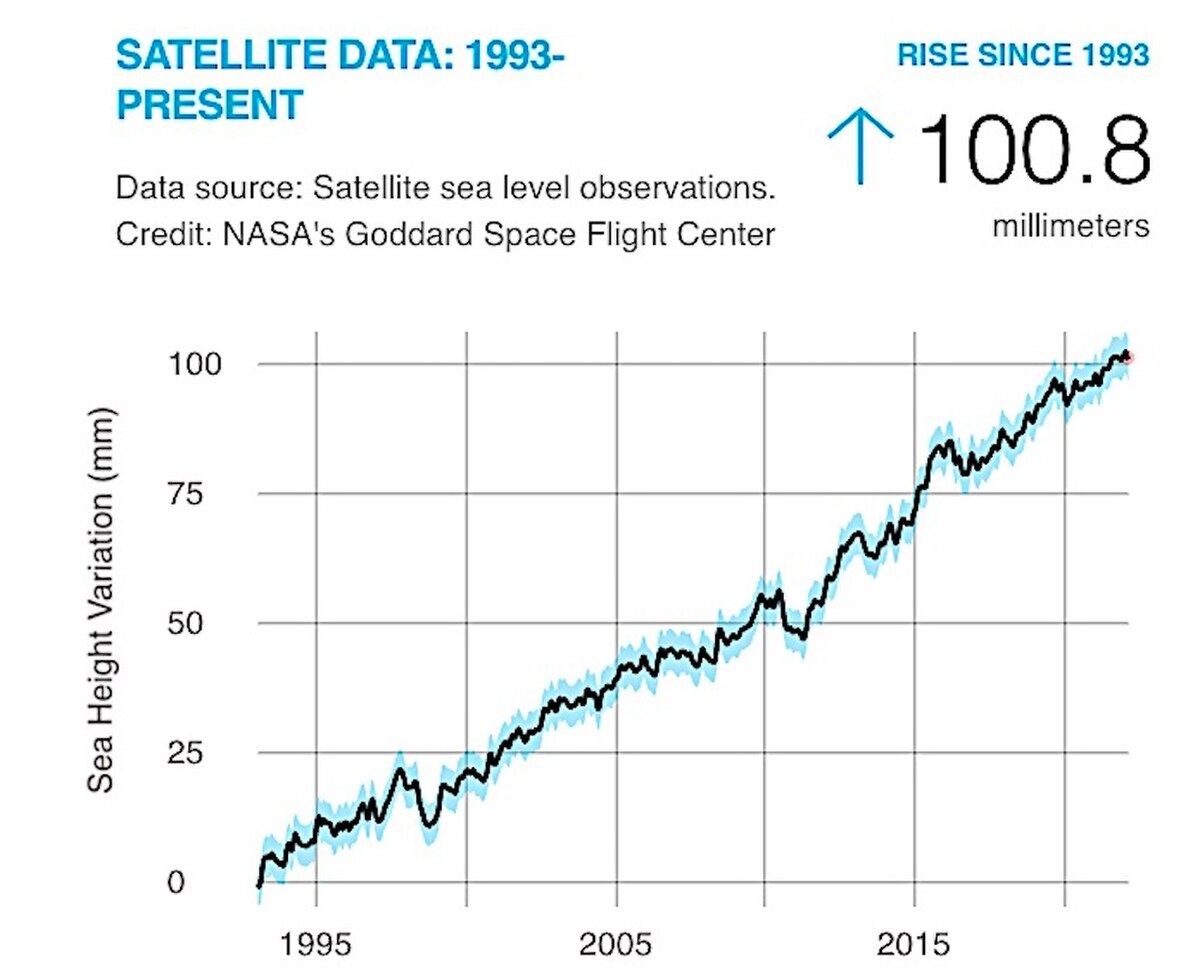
Also, projections show that the recent trend towards increased heavy precipitation events will continue in the US, “even in regions where the total precipitation is expected to decrease.” Droughts in the Southwest and heatwaves, which are “periods of abnormally hot weather lasting days to weeks”, are becoming more intense in places that used to have incredibly comfortable weather, such as WA.
In addition, according to Congressional Research Service, since 2000, an annual average of 70,600 wildfires have burned an annual average of 7.0 million acres, doubling the average annual acreage burned in the 1990s. The number of structures destroyed, according to Headwaters Economics, increased by 5 folds from 2016 to 2020. And states that were used to being minimally impacted by wildfires, such as Oregon, Washington, and Colorado, are seeing sharp increases in flames. People are losing everything, getting separated from families, and being displaced by those natural disasters. Their existence is in jeopardy.
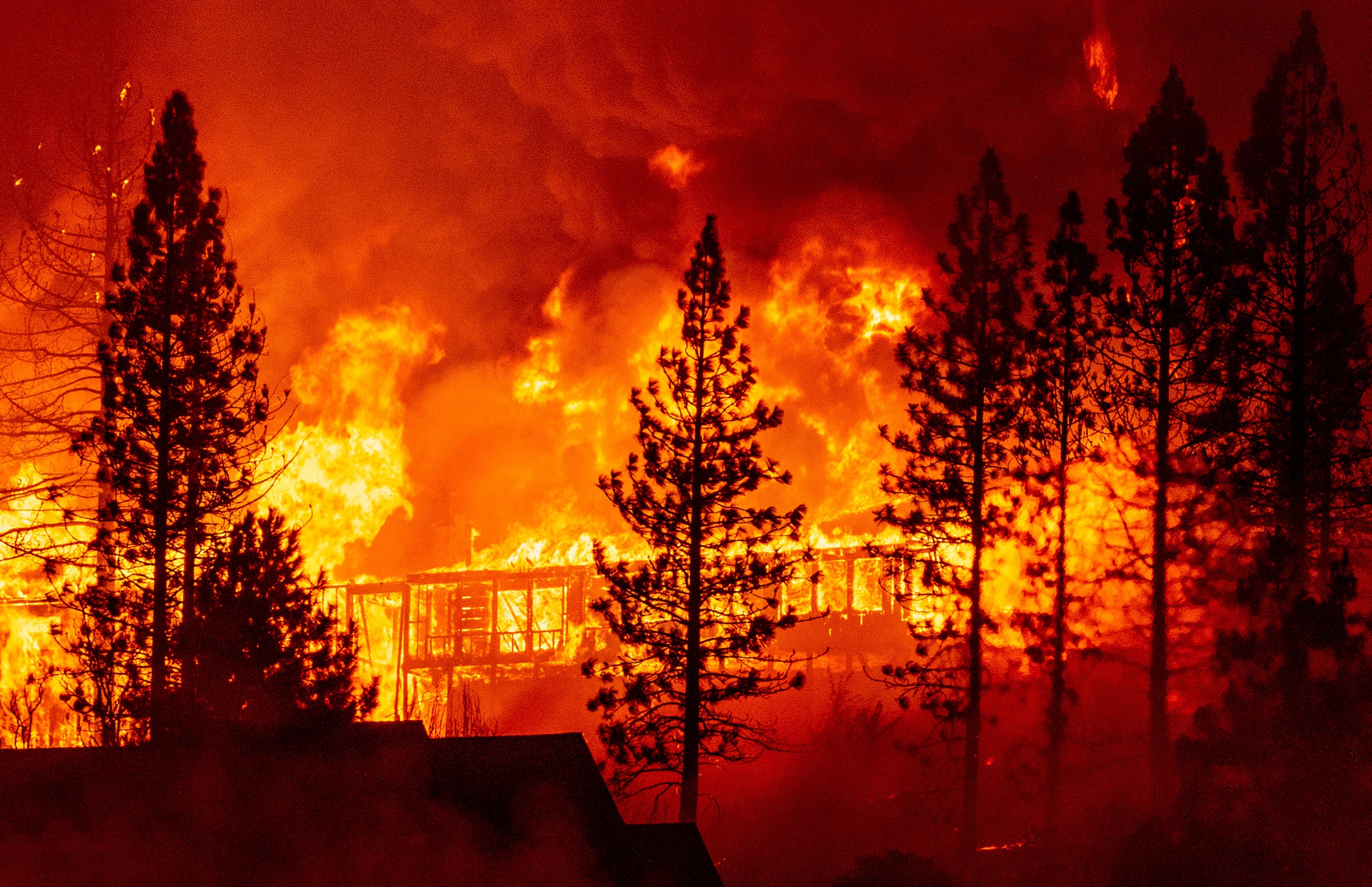
Some might argue other existential threats, such as a nuclear war or terrorism can be most dangerous to the US. However, it is not as big as an issue compared to climate change for the following two reasons:
First, though the destruction nuclear weapons can cause in a short period exceeds that of climate change, the likelihood for an actual war to happen is minuscule. Any reasonable leader or government is aware of the irreparable consequence that will be detrimental to both parties or even the entire world, thus would not take the risk of starting a nuclear war. It is entirely different when it comes to climate change, which does not give people an immediate and grueling impression that makes addressing and preventing it an urgency for many people. Pew Research found that Americans are less concerned with climate change compared to people in other countries. 41% of Americans believe it is not a serious issue. When people do not see the subtle environmental changes as threatening, climate change is not being effectively addressed. Moreover, “Taken as a whole, the range of published evidence indicates that the net damage costs of climate change are likely to be significant and to increase over time,” said the Intergovernmental Panel on climate change. In fact, in 2020, the United States “experienced unprecedented 22 weather or climate disasters that each resulted in at least $1 billion in damages”, according to Climate.gov. Those high costs demonstrate climate change’s huge destruction incurred on infrastructure, economic and social stability, agriculture, and human living quality. Nothing is more devastating to the US’s existence and the citizens’ experiences than this.
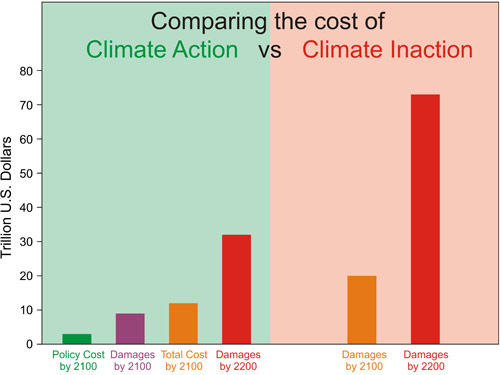
Climate change requires not just a few authoritative individuals or a couple of nations’ work to reverse. Though both the nuclear threat and climate change are global issues, it is easier to sign a peace treaty that curbs nuclear development than sketching out a detailed plan to actively ameliorate climate change. Prevention is always easier than repairing the already done damages. Convincing all countries with different political agendas, interests, and social values to bind together on fighting climate change be the most different thing to do. Since the US cannot accomplish this goal alone but still inevitably suffer from the consequences of environmental damages, climate change is troublesome.
Now, imagine a person with broken legs also developed cancer. What do you think is the most threatening condition? Broken legs or cancer? Some people’s view that climate change is not urgent to be addressed is like saying that cancer, which is subtle and long-term, is not the biggest threat to the person. America, like that patient, would not die with broken legs or people dying from diseases. But it will eventually be destroyed when cancer or climate change enters the last stage. So at the end of the day, climate change is the bigger existential threat.
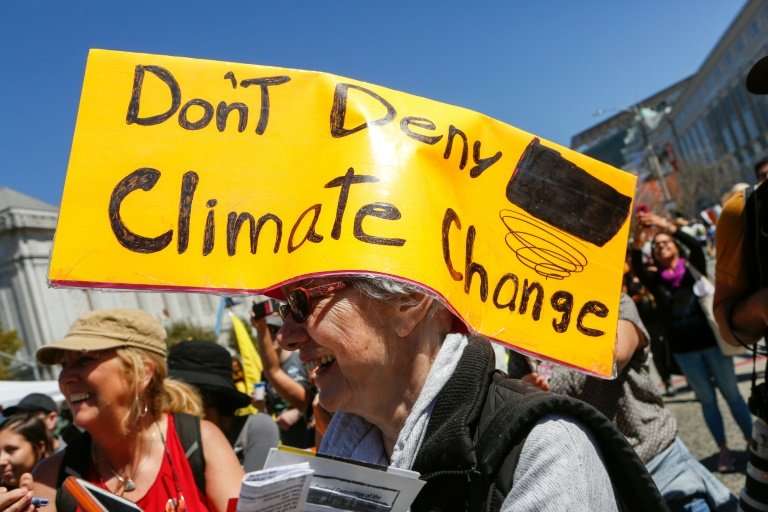
Sources:
- https://climate.nasa.gov/effects/
- https://fas.org/sgp/crs/misc/IF10244.pdf
- https://sealevelrise.org/#:~:text=Although%20the%20sea%20level%20has,flooding%20across%20the%20United%20States.
- https://www.pewresearch.org/fact-tank/2019/04/18/a-look-at-how-people-around-the-world-view-climate-change/
- Bostrom, Nick; Sandberg, Anders (2008). “Global Catastrophic Risks Survey” (PDF). FHI Technical Report #2008-1. Future of Humanity Institute.
- https://headwaterseconomics.org/natural-hazards/structures-destroyed-by-wildfire/
- https://www.climate.gov/news-features/blogs/beyond-data/2020-us-billion-dollar-weather-and-climate-disasters-historical
Check out other Opinions on Debatable Issues:
- The World Needs International Monetary Fund. https://mypathtowardsmindfulness.org/2021/04/03/the-world-needs-international-monetary-fund/
- Why Kids Should Continue Learn About Greek Myths https://mypathtowardsmindfulness.org/2021/04/10/why-kids-should-continue-learn-about-greek-myths/
- Are Humans Inherently Good? I say YES. https://mypathtowardsmindfulness.org/2021/04/17/are-humans-inherently-good-i-say-yes/
- To Succeed, The Feminist Movement Must Address Toxic Masculine Social Norms. https://mypathtowardsmindfulness.org/2021/05/08/to-succeed-the-feminist-movement-must-address-toxic-masculine-social-norms/.
- Should Human Cloning be Legalized? https://mypathtowardsmindfulness.org/2021/06/05/should-human-cloning-be-legalized/
- Why people are shifting focus from IQ to EQ?https://mypathtowardsmindfulness.org/2021/08/07/why-people-are-shifting-focus-from-iq-to-eq/
- Was Withdrawing from Afghanistan a Mistake? https://mypathtowardsmindfulness.org/2021/08/21/was-withdrawing-from-afghanistan-a-mistake/